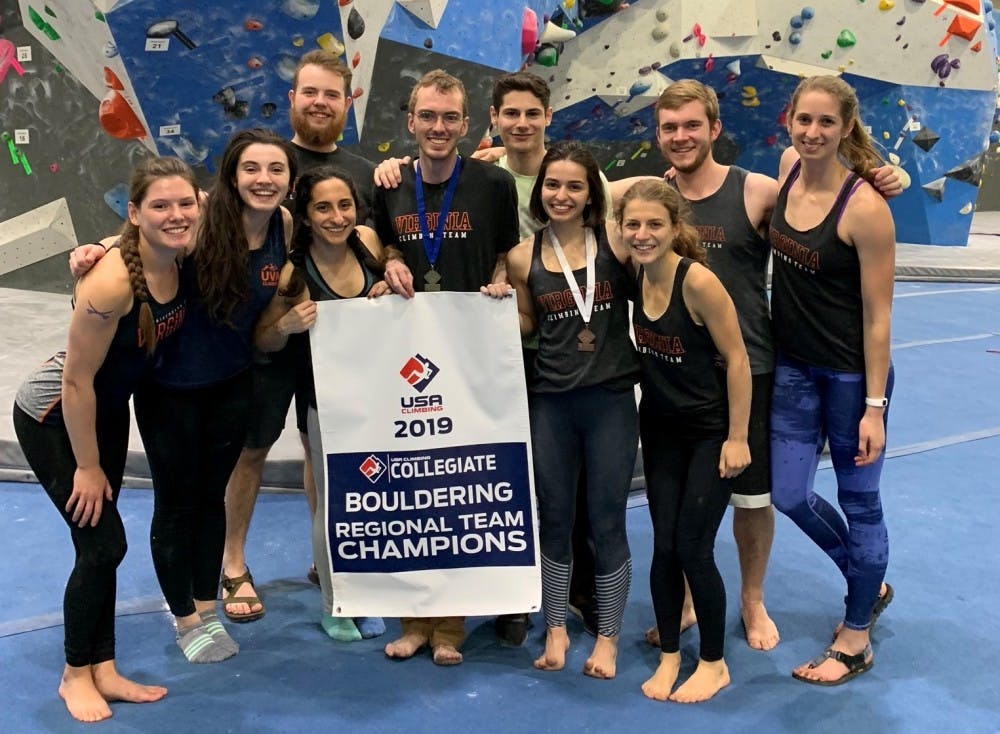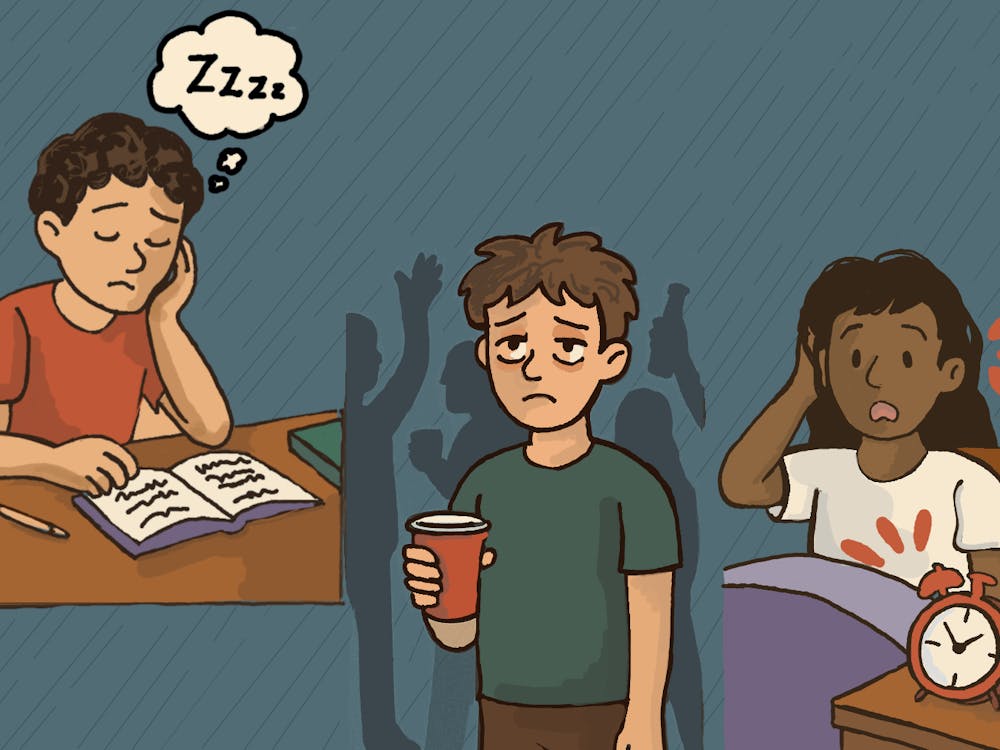It takes a dedicated student to drive to Richmond every Thursday night, and members of the University’s climbing team do just that. In addition to a practice on Monday nights at Charlottesville’s Rocky Top gym, the climbing team carpools to Richmond for practices on Thursday nights, often not returning to Grounds until midnight.
However, the team’s hard work has certainly paid off — the team won the bouldering category at the USA Climbing Collegiate Regionals Competition in Radnor, Pa., March 30. An individual can compete in three disciplines at a climbing competition — sport climbing, bouldering and speed climbing.
Sport climbing is roped climbing on tall walls, while bouldering involves climbing a shorter wall — usually under 20 feet — without gear. Competitors earn a greater number of points if they climb more difficult routes to the top in sport climbing. Bouldering typically involves a short series of difficult movements to get to the top. In contrast, competitors in the speed climbing discipline attempt to reach the top of the wall as fast as possible.
The team’s members, including all students who competed at regionals, collectively had the highest scores out of all the teams for the bouldering discipline. This means that the University’s competitors scored the most points in bouldering by climbing the hardest routes, so they return with their regionals banner held high. In addition to winning the regional title, 10 members of the climbing team will be heading to Nationals in Murfreesboro, Tenn., April 26.
Will Schaefermier, third-year Engineering student and Climbing Team co-president, expressed great joy at the team’s success at regionals, noting that unlike other schools, the University’s climbing team is a Contracted Independent Organization and thus does not have coaches. The students on the team train themselves and come up with their own workouts.
“We’re going against these 40-man teams from like University of Boulder and [University of] Utah that have monogrammed backpacks and all these coaches and assistant coaches and waterboys and stuff, and we’re just 10 people that roll up … and some of us still manage to place in finals,” Schaefermier said.
Third-year College student Jamie Wertz was similarly enthusiastic about the win, saying that she loved the way it brought people’s attention to the team. Wertz said many people do not know that the University has a climbing team, and she felt that the regional title provided her with an opportunity to tell others about her sport.
“I’m super excited that we won the basketball national championship, but it’s also cool to see that we do perform well in other disciplines as well,” Wertz said. “[It’s] cool to explain because a lot of people don’t know about climbing as a sport in general, and after regionals, people seemed more interested.”
Climbing at the University is about more than traveling to nationals and winning banners, however. Little, who has been climbing since the seventh grade, feels that the climbing team allowed her to find her niche at the University.
“Wherever you go, the climbing community is always so welcoming and so supportive, even at competitions,” Little said, “Girls in my own category are cheering me on, and I cheer them on, and it’s always been really supportive even though we are directly competing against each other.”
Schaefermier was similarly grateful for the community provided by climbing, noting that this year team members started an official climbing house so that they can continue to grow their relationships outside of practice. The team members are close, and according to Schaefermier, they spend a great deal of time together outside of climbing, having trivia nights or just hanging out.
Schaefermier also noted that being part of the climbing team provides members with unique opportunities, such as the ability to travel across the country to national competitions. Nationals moves every year. For example, nationals took place in San Diego during Schaefermier’s first year.
“StudCo gives us a lot of funding, and so we have a lot of opportunities to do these really cool trips as a group that I never would have been able to get into and go on on my own,” Schaefermier said.
Though the team members are passionate about climbing and about spending time with each other, the sport can also be extremely difficult.
“As a sport it’s very mental, so it’s easy to get in your head and discourage yourself from climbing and trying hard,” said first-year College student Olivia Little. “That’s something that’s especially important when it comes to climbing competitions … when you’re on a route and you’re like, ‘I’m going to fall’ and you keep telling yourself you’re going to fall, then you’re going to fall.”
Though challenging, the mental work of climbing can also provide a respite for some students. As Wertz noted, climbing can be more stimulating than other physical activities.
“It’s more interactive — you can collaborate with other people,” Wertz said. “It’s sort of like problem solving, and it definitely helps me balance work and other responsibilities I have during the day.”
The climbing team currently has about 30 active members, but they welcome new members to join their community at any time. No tryouts are necessary to join the team, and participation is largely what you make of it. Members pay 50 dollars in dues each semester that covers the costs of gym membership, USA climbing membership and traveling. Additionally, the climbing team has gear students can borrow if they do not want to purchase their own.
“Anyone is welcome,” Little said. “All age ranges, all skill levels — we even have grad students who are on the team. And you don’t have to compete, it can be completely recreational if that’s what you want to do.”







